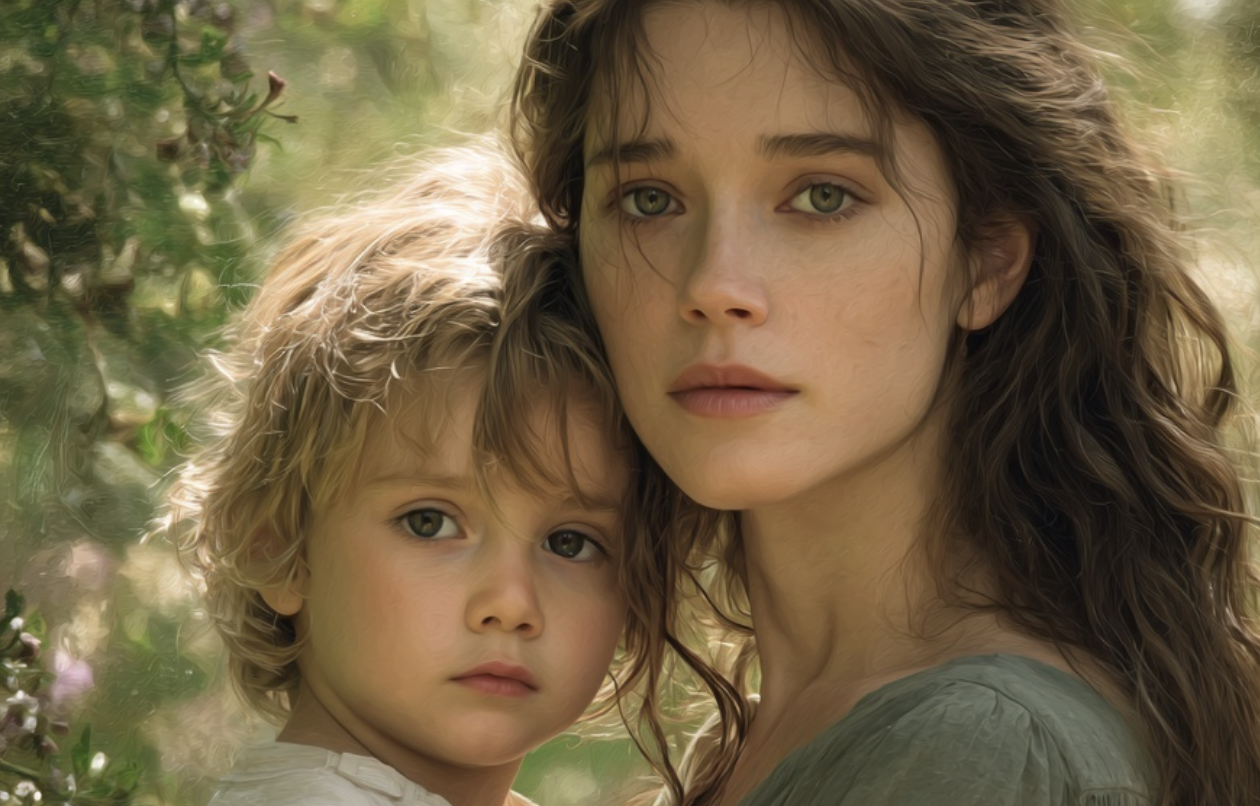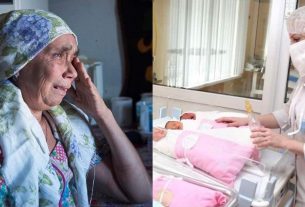Yura was born ordinary, but Anya immediately sensed that something was wrong with her son. She would look into his dim infant eyes and fail to find something essential that ought to be there if everything was all right. Her fear wasn’t unfounded—seventeen years of living under the same roof with a sister who couldn’t walk and existed in her own uncharted world had taught her to think that way.
“Let him be normal, let him be normal,” Anya repeated like a mantra throughout her pregnancy, every minute of the completely painless labor, and through the hours of his infancy that seemed to stretch into eternity.
“Take some valerian,” every doctor she went to advised, as she haltingly mumbled something about his eyes and the emptiness in them. “Your boy is fine.”
Nothing was fine. She had probably always known it—throughout her childhood she secretly rejoiced that she was the normal one and Nadya wasn’t, even though they’d been born seven minutes apart and both had spent a long time in the neonatal ICU; Anya got lucky, Nadya didn’t. Skipping along a sunlit park path, picking ripe raspberries at her grandmother’s dacha, solving hard equations in algebra class—Anya could never shake a vague sense of triumph that she was normal and Nadya wasn’t. And now she was paying for it, hauling along five-year-old Yurik, who was kicking her with his dirty boots as hard as he could, leaving bruises and smearing the jacket she’d washed only yesterday. They still had two bus stops to walk, and Anya tried not to meet the eyes of passersby who looked on with either censure or pity, because Yura’s screaming made your ears ring.
“Such a big boy, and in his mother’s arms—shame on you!” said a woman in a green coat, and Yura only worked himself up more.
When he was in a good mood, they took the bus—the playground he loved was four stops from home; they’d found it by chance once when they went to a nutritionist and, while waiting, discovered this playground with little airplanes and creaky swings that Yura adored. Now they had to go there—it was better than listening to his insistent screaming.
Over the years Anya’s mantra changed—more and more often she caught herself thinking that she wanted him to disappear. Evaporate, melt away—life doesn’t work like that, but one can dream. She imagined waking in the morning to find no crib in the room, and Valera still living with her, occupying his side of the bed, his arms flung out comically, as if even in his sleep he were trying to save someone, playing Superman. No, she didn’t hold it against him—if he could have done something, he would have; there was nothing that could frighten him. Nothing except one thing—Valera could not accept that sometimes he too was powerless.
On those rare days when Yura managed to sleep more than five hours, she herself could get some rest, waking not to his scream but to the sun stroking her face, to the feeling that her brain had finally completed its reboot and was ready to work at full capacity—which, truth be told, rarely happened. Then she would crack her eyes open just enough so the crib stayed out of view and pretend she was nineteen and had just gotten married. In a moment she would turn and hug Valera, and then they would have breakfast together and head out—she to her classes, he to work, saving people.
When they were less than two hundred meters from the playground, Yura suddenly calmed down and fell silent, asked to be put down, and tottered off unsteadily in shoes that were too small (he flatly refused to change into a bigger size, and Anya regretted not having bought every size of those stupid shoes when she had the chance).
“See—there are your favorite airplanes… Shall we buy a bun at the kiosk now, want to?”
Yura, in truth, was indifferent to buns, but it was a ritual they both needed—Anya would get herself a large sweet cappuccino, buy two buns with white cream, and then sit on a bench, taking in a well-deserved carb bomb after the daily, exhausting event they called “going to the playground.”
While she drank her coffee, Yura made the rounds of his domain, flinging sand at rivals if any appeared.
“Keep an eye on your son!” the moms of the aggrieved children would demand, and Anya would apologize out of habit, not even trying to explain that it wasn’t her fault and that she had told him a thousand times not to do that.
Today she was lucky—the playground was empty, and she could drink her coffee in peace, squinting at the unexpectedly bright sun, which didn’t warm the damp October air but still created the illusion of warmth, and together with her puffy winter jacket and the hot sweet coffee lulled Anya, wrapping her in a gentle embrace…
She started, opened her eyes, and at first saw nothing because of the glare. She strained to find the blue jacket—on one airplane, on another, then at the swings… Nowhere.
The first thing she felt was shameful joy. She had wished for him to disappear, and he had. But at once a new feeling crashed over Anya—sticky fear that wrapped around her; it was impossible even to breathe, let alone to move. Slowly, as if her body were made of wood, Anya got to her feet and called:
“Yura!”
Silence.
“Yurochka!”
No answer.
In any case, he rarely responded to his name.
Anya’s ability to move returned—she ran, darting from side to side, shouting her son’s name, barely keeping the hysteria out of her voice so as not to scare him. But Yura was nowhere. Soon a kindhearted grandmother and two teenagers joined her and ran off to look in the neighboring courtyards.
Anya dialed Valera.
“Yurochka is lost,” she breathed into the phone.
This was a task Valera could handle—he even brightened; for once he could do something for his son and for Anya, to at least somewhat atone for his cowardly flight.
He did find Yura—in one of the yards across the street. And how had the boy crossed the road? Why hadn’t anyone stopped him, so tiny and all alone? When Valera handed over a now-quiet Yura, sweetly snuffling on his father’s shoulder, Anya finally burst into tears. They ran down her face like water, washing away the lifeless rays of the autumn sun and her shameful hope that things would resolve on their own. They wouldn’t. Yura would always be with her, and only she could determine how they would live. No one could save them, not even Valera.
“Let me drive you home,” he suggested.
Anya shook her head.
“Take me to Mom’s.”
She said “to Mom’s,” but that also meant to Nadya, who, truth be told, had been far less lucky than little Yura. Which meant that she, Anya, had been lucky again; she just hadn’t noticed before.
Valera’s car was as spotless as ever, but it smelled different—something cloyingly sweet, suffocating. Perfume? Clearly not men’s. So, he’d found someone—hardly unexpected. Anya didn’t ask about it—she thanked him for his help, took the crumpled bills, although he’d already paid child support this month, and, with Yura in her arms, walked up to the fifth floor (he didn’t like elevators, and she’d had enough tantrums for one day).
While Yura chatted with Nadya in their incomprehensible birds’ language, showing her pictures in the new book Grandma had given him, Anya sat in the kitchen drinking lemon-balm tea, eating her mother’s apple charlotte, and almost smiling.
“His jacket’s filthy again,” her mother remarked. “Give it here, I’ll soak it—it’ll dry in time.”
Anya nodded. Here she felt good and calm. Her mother was the one person who could understand her. Only Anya didn’t know whether her mother had ever wished for Nadya to disappear. She would never ask her that, just as she would never ask whom she loved more. She used to think that of course it was her—she was the normal one—but now, feeling her heart clench when she looked at Yura’s otherworldly expression, Anya began to doubt that certainty. She closed her eyes and pretended she was fifteen again, with everything still ahead—meeting Valerka, feeling her baby’s first flutter under her heart, and hearing his first weak cry.
“Mom…”
The word pulled her out of her reverie, and Anya opened her eyes. Her son was standing beside her, tugging at her hand. She didn’t recall what he wanted and followed him. In the bathroom came the sound of running water—her mother was soaking the jacket. They walked past the bathroom into Nadya’s room. Nadya had slid off her pillow; she was uncomfortable, and Yura showed Anya—she needed to fix it. For the first time in five years Anya saw in her son’s eyes something important, the very thing she had searched for so long. After straightening the pillow and lifting her sister so she could comfortably look at the book with Yura, Anya hugged her son and swallowed the rising tears. After all, she was very lucky with her boy. Very.



